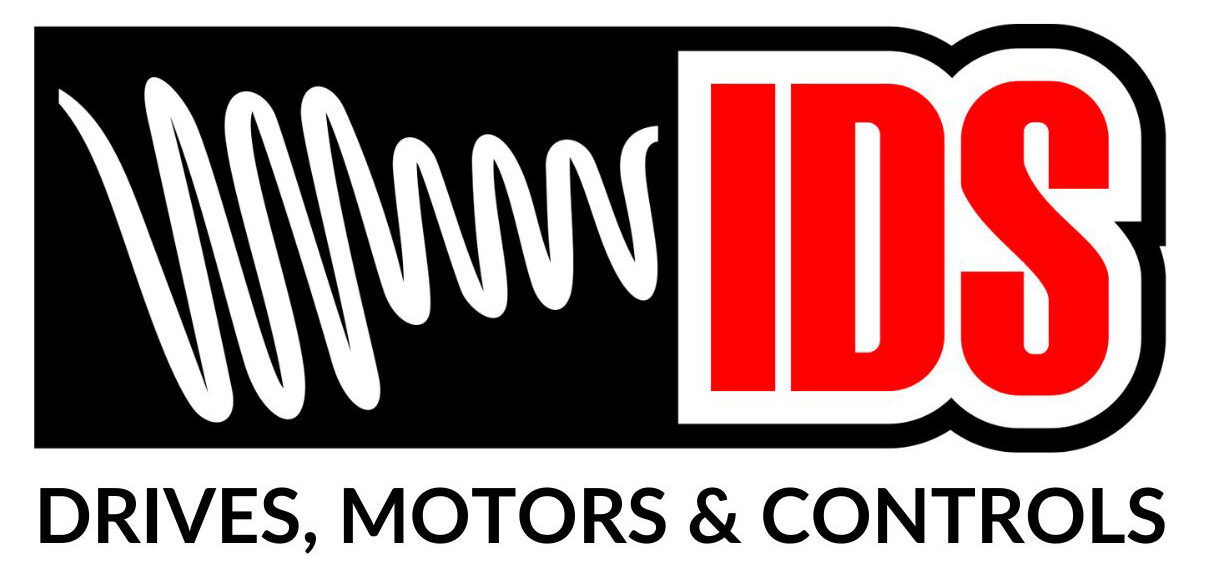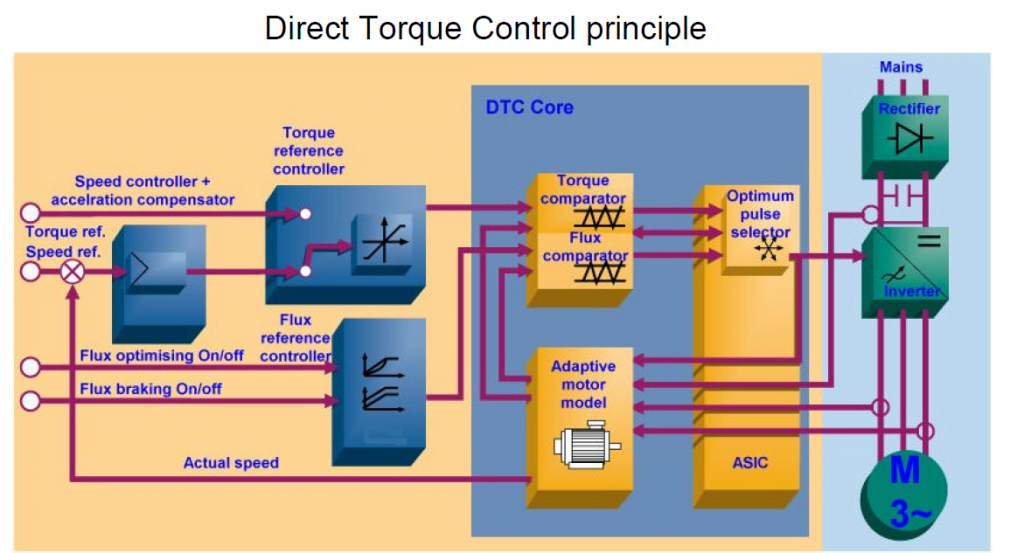DTC – New generation motor control platform offers greater speed and torque control
The motor control platform, direct torque control (DTC) – used extensively in ABB’s variable-speed drives (VSDs) since 1996 – has been greatly improved to bring even higher accuracy in motor speed and torque control, as well as the ability to control more motor types.
This fourth generation DTC provides enhanced performance in open and closed loop and a higher switching frequency. Speed and torque control accuracy have been improved, for both dynamic and static values.
Support for high speed motors up to 500 Hz (as standard) and absolute encoder and resolver support are provided, while other improvements include more choice of identification (ID) set-up runs. These include highly accurate standstill ID runs, allowing the drive to identify the motor from its performance characteristics without the need to uncouple the motor from the load.
DTC – New generation motor control platform offers greater speed and torque control
Drives equipped with the new DTC can now respond to changes in the customer speed reference much more quickly, with the motor shaft responding within 2 ms of a reference change instead of 10 ms.
DTC lets users of the latest ABB industrial drives, ACS880, control any motor type without a change to the firmware, making it practical to use squirrel cage, permanent magnet and ABB’s advanced synchronous reluctance (SynRM) motors – the latest motor control technology offering high efficiency IE4 or high output compact motor variants. This widens the scope for engineers to use almost any motor to suit their needs.
The ACS880 drive offers fully functioning scalar control with its own ramps, fixed- and skip- speeds. Scalar is useful in multi-motor applications and can be used to test installations before switching to DTC; particularly useful when the test motor is not the same size as the motor to be used on site.
With DTC, field orientation is achieved without feedback, using advanced motor theory to calculate the motor torque. DTC uses the fastest digital signal processing hardware available and a more advanced mathematical understanding of how a motor works. The result is a drive with a torque response that is typically ten times faster than any AC or DC drive. This gives much improved process control and a more consistent product quality. The dynamic speed accuracy of DTC drives will be eight times better than any open loop AC drives and comparable to a DC drive that is using feedback.
Some applications require particular feedback devices, for either position or speed feedback. Although DTC negates the need for speed feedback devices, accuracy can be further improved with an extensive range of encoders, resolvers and tachometers. The ACS880 drives have option slots to allow these items to be fitted internally, making installation convenient and cheaper.
DTC was developed to bring the best motor control of induction motors and is now extended to control other industrial motor platforms, being one of the few to generate full torque at zero speed on standard induction motors. It can be applied to high dynamic or highly arduous applications and can tackle any industrial application.
High dynamic torque control means applications such as grinders and crushers can be managed effectively, whilst the ability to generate torque at low speeds means DTC can effectively handle mixers or start fully loaded conveyors. DTC can be operated in master follower modes, making winders and strip lines easier to control, as well as cross travel or long travel crane control.
DTC offers torque control at low (or zero) speeds, particularly beneficial to cranes, hoists, winches or elevators, where the load needs to be started and stopped regularly without any jerking, and with load on the cables. The torque linearity offered by DTC allows an accurate and consistent level of winding, while its dynamic speed accuracy allows a motor to quickly recover to a stable state following a load change.
Test benches and dynamometers are tackled with the high speed reference chain, which allows a motor shaft to respond to a change in speed reference within 2 ms. Again, master follower modes can be employed here, along with connection to industrial fieldbuses for control and monitoring
DTC allows the ACS880 drive to control fans or pumps that can be spinning at the start of the cycle, either forwards of backwards. A direct-on-line (DOL) or soft start control will abruptly bring the motor to rest, with the danger that the load or the coupling is damaged. By contrast, the DTC flying start smoothly catches the load and takes it under control, returning it to the desired speed.
A further feature of DTC is flux optimisation (or energy optimisation), which provides enhanced energy saving even beyond that of other variable-speed drives. It adjusts the motor flux to the optimal value for the load conditions at the time, thus constantly saving energy across the lifetime of the application.
ABB (www.abb.com) is a leader in power and automation technologies that enable utility and industry customers to improve performance while lowering environmental impact. The ABB Group of companies operates in around 100 countries and employs about 150,000 people.
Inverter Drive Systems (www.inverterdrivesystems.com) are the largest ABB AVP (Authorised Value Provider) and have energy saving specialists available to perform free energy saving surveys call 0115 9441036 or email [email protected]

